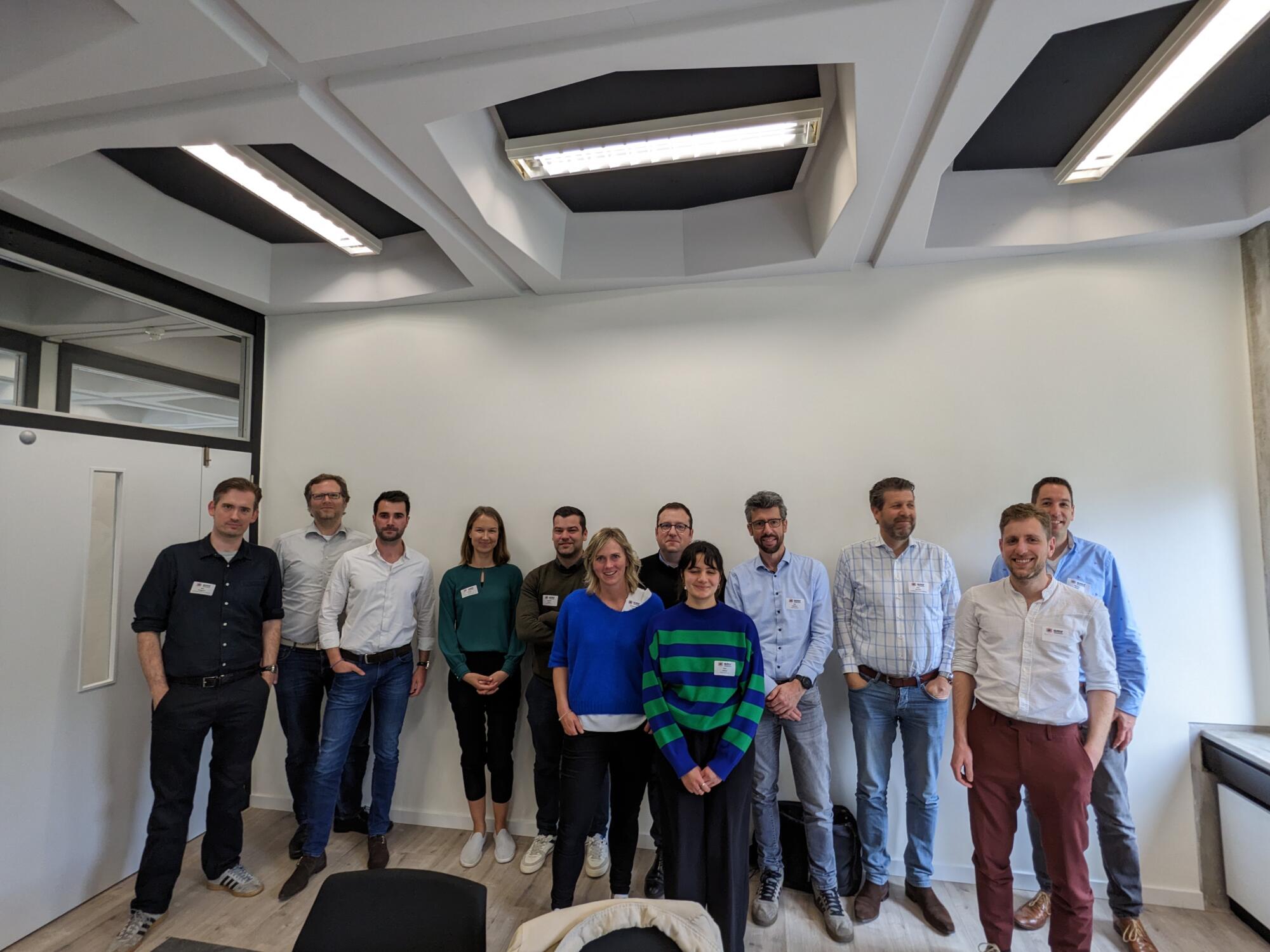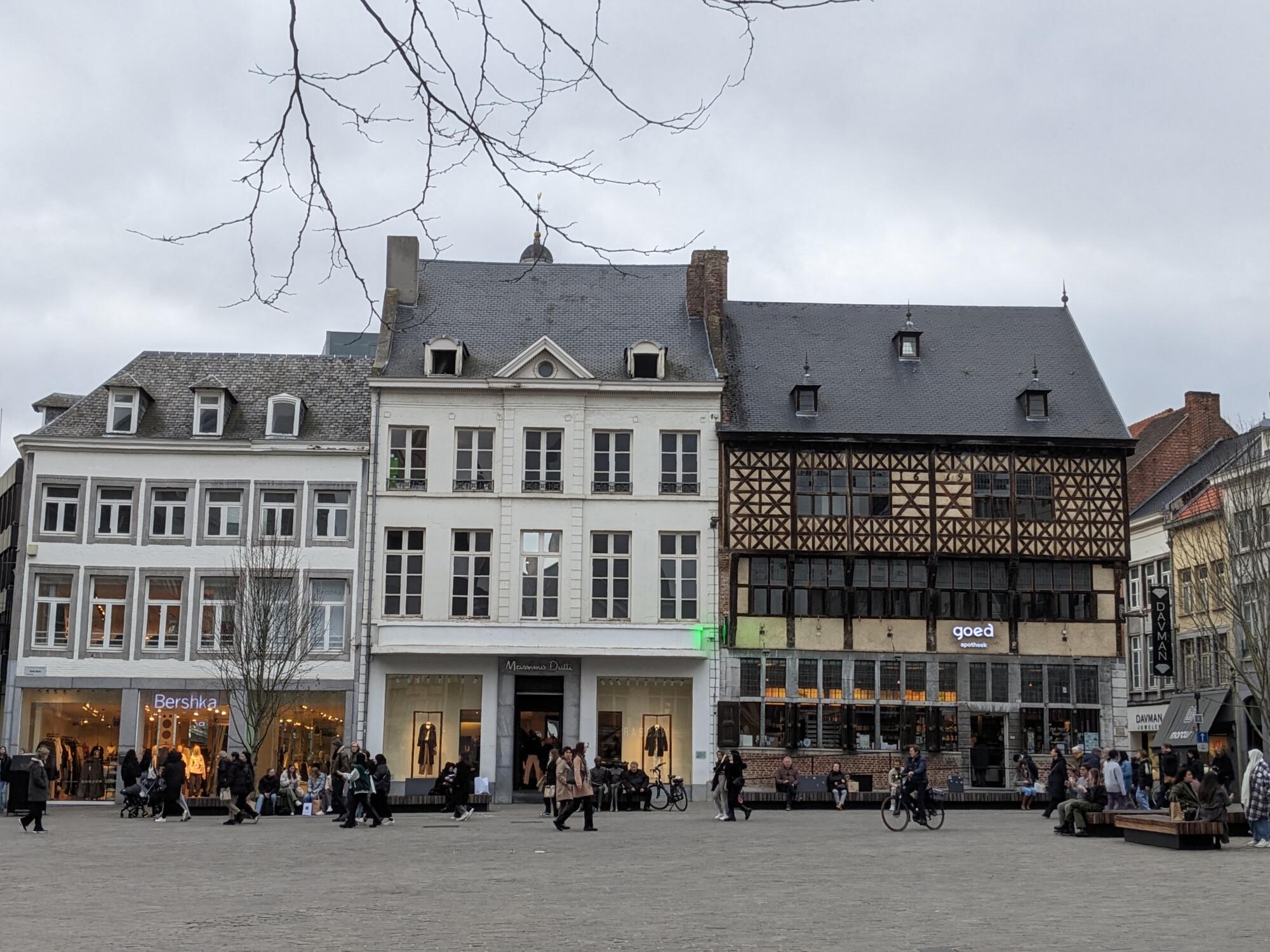3rd EMR Workshop in Heerlen, a city of shared mobility experts
Heerlen, the former mining town that transformed itself into a regional hub for universities and government agencies, hosted the third workshop in the EMR Connect series on 10 May.
Nearly 20 people attended the full day of presentations and site visits, which focused on shared mobility. Whether the mode of choice is cars, cargo bikes or e-bikes, Heerlen and the surrounding ‘Stadsregio Parkstad Limburg’ area has solutions for everyone who likes to get over the hilly terrain of the ‘Dutch mountains’. Due to these hills, Limburg and especially Zuid-Limburg is struggling to keep up with the national average of trips made by bicycle. The terrain and the mining culture, which has promoted the personal car as a status symbol, have engrained a car-centric culture and transport policy in the region. Dedicated colleagues and EMR Connect aim to change this by promoting cross-border cooperation.
EMR Connect, Rupprecht Consult, and POLIS Network invite you to read the summary of the workshop in the following paragraphs and register for the fourth and last iteration of the workshop series, which will take place on 14 June 2023 in Liege (BE) - you may register here.
Meeting in Heerlen
After a first introductory round and welcoming words by moderator Ivo Cré (POLIS Network) and the hosts Bob Borggreve and Rob Beentjes (Parkstad Limburg), Ronny Wolfs (Stad Heerlen) presented Heerlen and the surrounding area of Parkstad Limburg. As mentioned in the introduction, Heerlen had to overcome the challenge of rapidly transforming from a rich mining town into a precarious city on the fringe of the country, once the mines closed in the 1970s. The change was possible by attracting university students, and government agencies and enhancing the mobility connections between the towns and cities of Zuid-Limburg.
The city has launched a mobility vision, which is dubbed ‘Heerlen in Beweging’ (Heerlen in motion), which highlights the importance of active mobility without neglecting other forms of transport. The framework includes the enhancement of transport information in the region, as well as active mobility infrastructure, bike riding, bike sharing and the creation of mobility hubs. The overall aim is to boost cycling up to 25% of the modal split in the long term.
VeloCity: a shared e-bike scheme for Parkstad Limburg
This presentation was followed by a coffee break with local traditional vlaai (Limburgian cake) and a presentation on one of the centre-pieces of regional mobility; the 'VeloCity' shared e-bike scheme. The unique aspect of the e-bike sharing scheme, which provides access to more than 100 e-bikes in 26 stations in Parkstad Limburg, is the cross-border element that allows users to rent their vehicle and return it at a fixed station in another country. The scheme, which originated in Germany in 2004, was implemented with the opening of the first station in Heerlen in May 2022. This success was built on several years of organisation, exchange between the different Parkstad Limburg stakeholders, and support from the Interreg REFORM project and was delayed by the COVID-19 pandemic.
it at a fixed station in another country. The scheme, which originated in Germany in 2004, was implemented with the opening of the first station in Heerlen in May 2022. This success was built on several years of organisation, exchange between the different Parkstad Limburg stakeholders, and support from the Interreg REFORM project and was delayed by the COVID-19 pandemic.
Taking a closer look at the overall cross-border aspect of 'VeloCity', one can identify the significant efforts that were made by the authorities, as 570 e-bikes in more than 100 charging stations are available in Germany and the Netherlands. These vehicles are serviced by a shared workshop, which is located on the border between the two countries.
The success is built on the constant cooperation between the aldermen from the different municipalities, who meet on a bi-monthly basis and exchange challenges and solutions related to the 'VeloCity' framework and mobility plans. Other plans include the enhancement of the sharing station concept, by potentially including photovoltaic systems to charge the e-bikes with carbon-free energy or include car charging.
Making... Goodmoovs (and other shared mobility choices)
The project presentations commenced with Didier Bollen, who presented ‘Goodmoovs’, a car-sharing solution, which allows employers, companies and other stakeholders to lease electric cars. This ‘all-electric ecosystem’ is built for shared mobility and energy and is currently operating in four countries, of The Netherlands, Belgium, Germany and the United Kingdom. 'Goodmoovs' is participating in several projects, including the SCALE project that researches vehicle-to-vehicle- and vehicle-to-grid charging.
The last presentation of the day included a study of Zuid Limburg Bereikbaar by Mathijs Schoenmakers, which focused on shared mobility potentials in Heerlen and the wider region of Zuid-Limburg. The assessment aims to identify which shared mobility providers could be attracted to the region, even though the demand might be difficult, as only a fraction of the around 600.000 inhabitants might be interested. Further observations were made about the differences between a ‘closed system’, such as car sharing in a  dedicated neighbourhood, and an ‘open system’, like a free-floating e-scooter rental. Additionally, the pooling of solutions into hubs was also discussed, which was based on the research of the hub system in the rest of the Netherlands.
dedicated neighbourhood, and an ‘open system’, like a free-floating e-scooter rental. Additionally, the pooling of solutions into hubs was also discussed, which was based on the research of the hub system in the rest of the Netherlands.
In the second half of the workshop, Bob Borggreve and Rob Beentjes shared the latest mobility-related developments in the City of Heerlen, which included its redeveloped train station, shared e-bike stations, as well as pedestrianisation efforts, which are currently being implemented. All of these developments were flanked by a mix of historic and modern buildings.
A highlight was the developed train station area of Heerlen, which was transformed from a problematic location into a mixed-use zone for shops, residents and public transport.
The day was concluded with a visit to the mining museum, which highlighted the historical life of the Heerlen inhabitants, their social customs, ties to other countries due to labour migration, as well as the policies that were implemented to counteract the social challenges that were accelerated by the closure of the mines.

